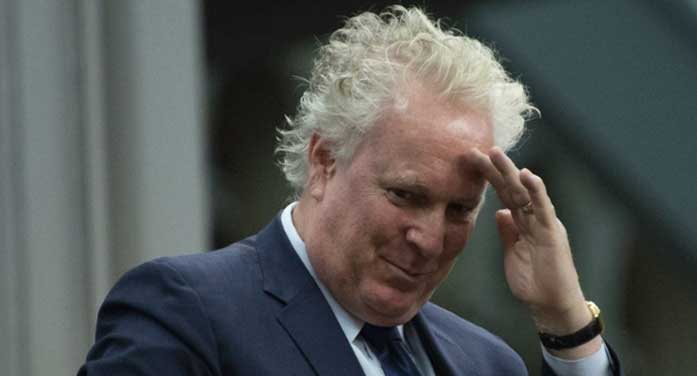 The premise of Jean Charest’s campaign for the federal Conservative leadership is that he’ll deliver power by bringing in votes that have eluded the party. Hence the Built to Win theme.
The premise of Jean Charest’s campaign for the federal Conservative leadership is that he’ll deliver power by bringing in votes that have eluded the party. Hence the Built to Win theme.
Charest would undoubtedly appeal to some people who’ve recently voted for other parties, especially the Liberals. But whether there’d be enough converts to actually win a material number of new seats is the tricky bit.
Or, to be more precise, it’s one of the tricky bits.
The other conundrum is whether he’d be able to retain the loyalty of the existing Conservative base. Put starkly, would Charest’s elevation run the risk of reigniting the split that produced the Reform revolt of the 1990s?
In retrospect, Charest’s leadership campaign has tilted more to the right than might have been expected. He said he wasn’t running as a Red Tory. And he hasn’t.
He also has the support of people with credible ideological bona fides. There’s former Ontario premier Mike Harris, public affairs commentator Tasha Kheiriddin and libertarian economist William Watson. By any reasonable Canadian standard, these are politically right-of-centre figures.
Still, doubts persist. Charest has a long personal history and people have been burned before by politicians who campaign one way then behave differently. The most recent Conservative leader, Erin O’Toole, might be considered a case in point.
 |
| RELATED CONTENT |
| The return of the Red Tories By Pat Murphy |
| Why Jean Charest’s new political identity doesn’t fly By Michael Taube |
| Pierre Poilievre’s prospects and perils By Pat Murphy |
A June Angus Reid poll highlighted the base erosion risk, asking whether people would be more or less likely to vote Conservative if Charest were leader.
Netting the responses, a full 29 per cent of those who voted Conservative in the last election say they’d be less likely to do so with Charest at the helm.
And taking all parties – including the Conservatives – into account, Charest still comes out with a less likely net of 17 per cent. The disaffection among a significant chunk of the Conservative base apparently exceeds his relative attractiveness to non-Conservative voters.
That, however, isn’t the end of the story. A federal election isn’t a national popular vote referendum. Geographical distribution of support is immensely important. Seat count is all that matters in the end.
It’s possible that Charest could pick up sufficient seats in Central Canada to more than offset the loss of support elsewhere. Yes, current Conservative seats in Alberta and Saskatchewan might be retained with depleted majorities. But a seat is a seat, regardless of whether it’s won by a single vote or by tens of thousands.
That said, any strategy consciously flirting with base erosion is a high-wire act. And there’s no safety net.
So what, if anything, can Charest do to convince the doubters?
Given the history, he could do worse than sharing any second thoughts he might have on the great schism. Although the Reform revolt was against Brian Mulroney’s government, Charest was a major player in the ensuing political war.
First elected as a Progressive Conservative MP in the Mulroney landslide of 1984, Charest became Canada’s youngest ever cabinet minister two years later. He was just 28 years old.
Further progress was quick, and he was appointed deputy prime minister in 1993. Then came the general election debacle which saw the governing Progressive Conservatives reduced to just two seats. And as the young and charismatic holder of one of those seats, Charest was the obvious choice for party leader.
While not the only contributor, the scope of this decimation was in large measure a function of the Reform revolt. With virtually no money and very thin infrastructure, the new upstart party voraciously ate into the Progressive Conservative base, won dozens of its hitherto seats and replaced it as the first choice of right-of-centre Canadians.
Understanding what had happened and repairing the schism seemed an obvious priority for the new party leader. But there’s little evidence Charest saw it that way. In any event, no visible progress was made in that regard before he departed federal politics in 1998.
So it would be interesting to know if, almost 30 years on, he’s had any second thoughts. Experience should be a great teacher and there’s nothing wrong with hindsight learning.
And it might even alleviate some of the current reservations.
Troy Media columnist Pat Murphy casts a history buff’s eye at the goings-on in our world. Never cynical – well, perhaps a little bit.
For interview requests, click here.
The opinions expressed by our columnists and contributors are theirs alone and do not inherently or expressly reflect the views of our publication.
© Troy Media
Troy Media is an editorial content provider to media outlets and its own hosted community news outlets across Canada.
